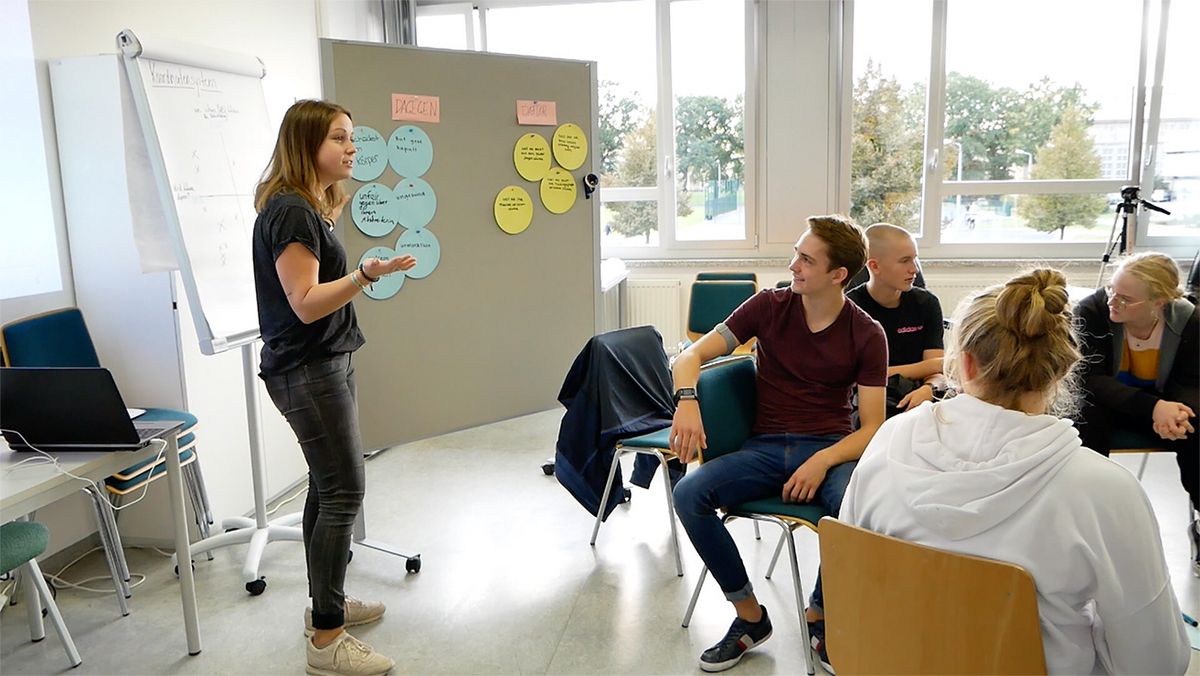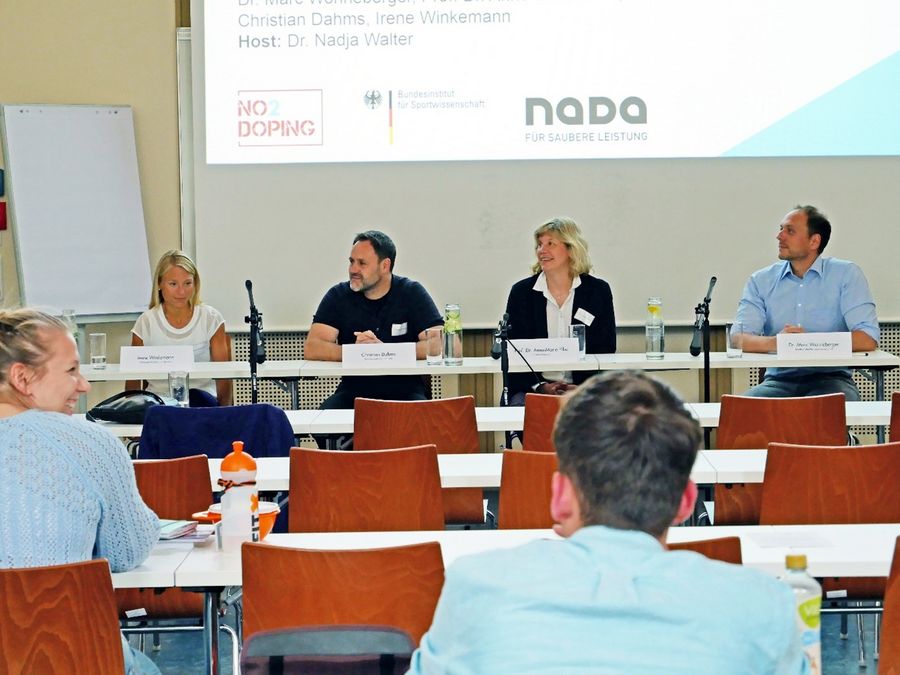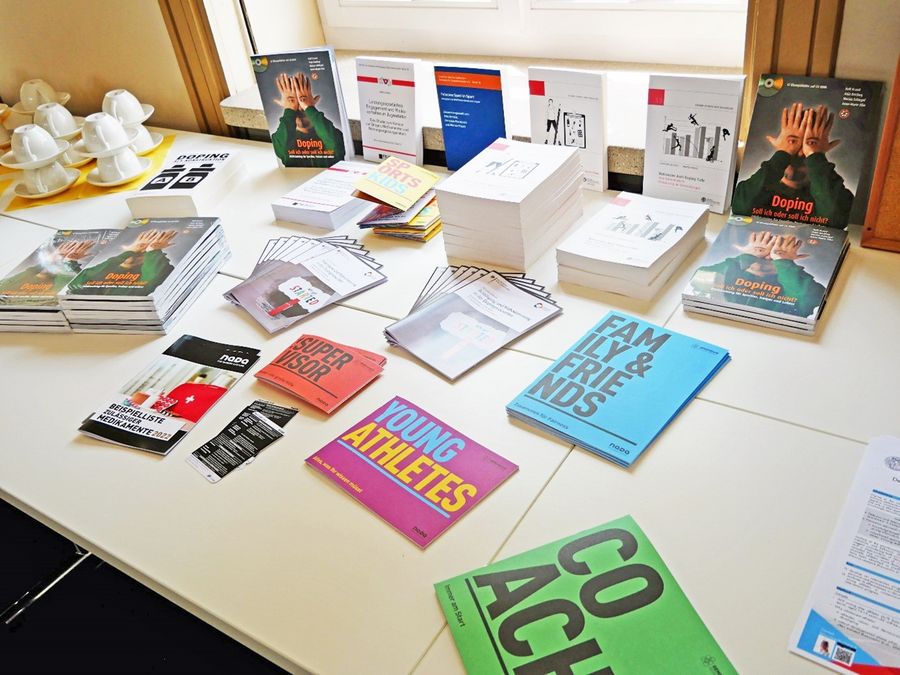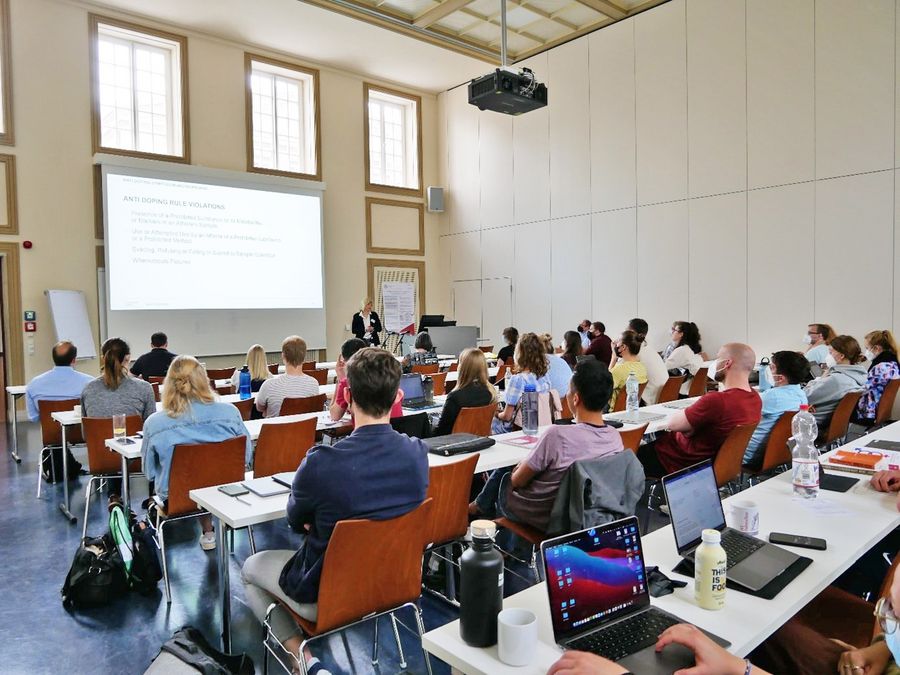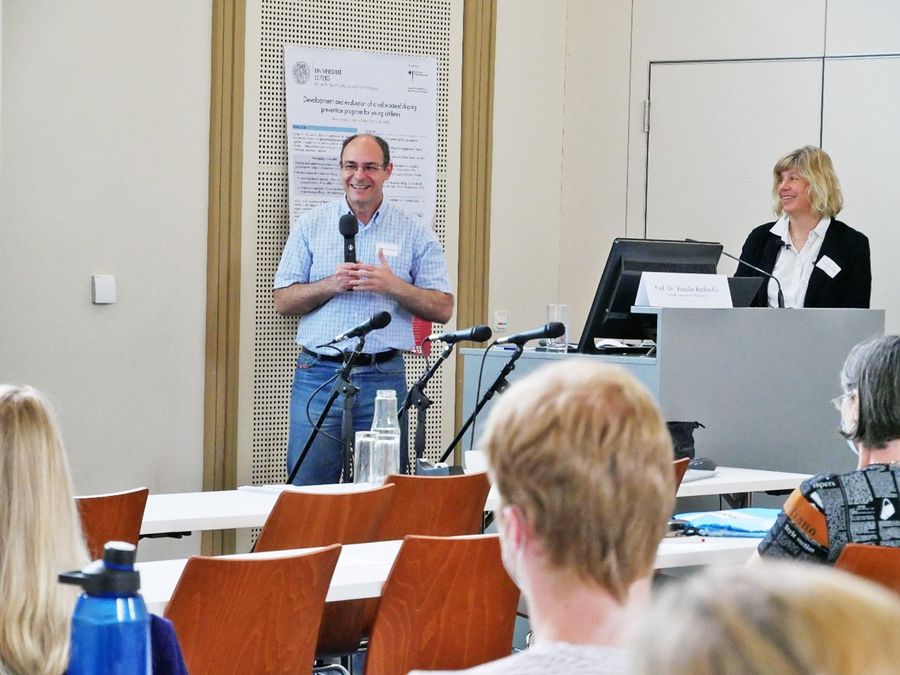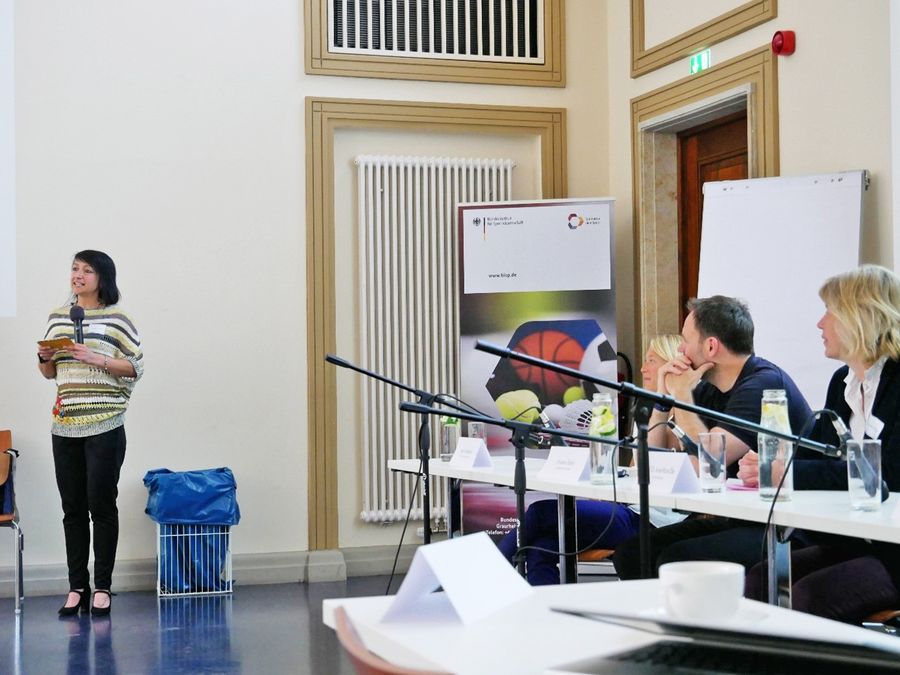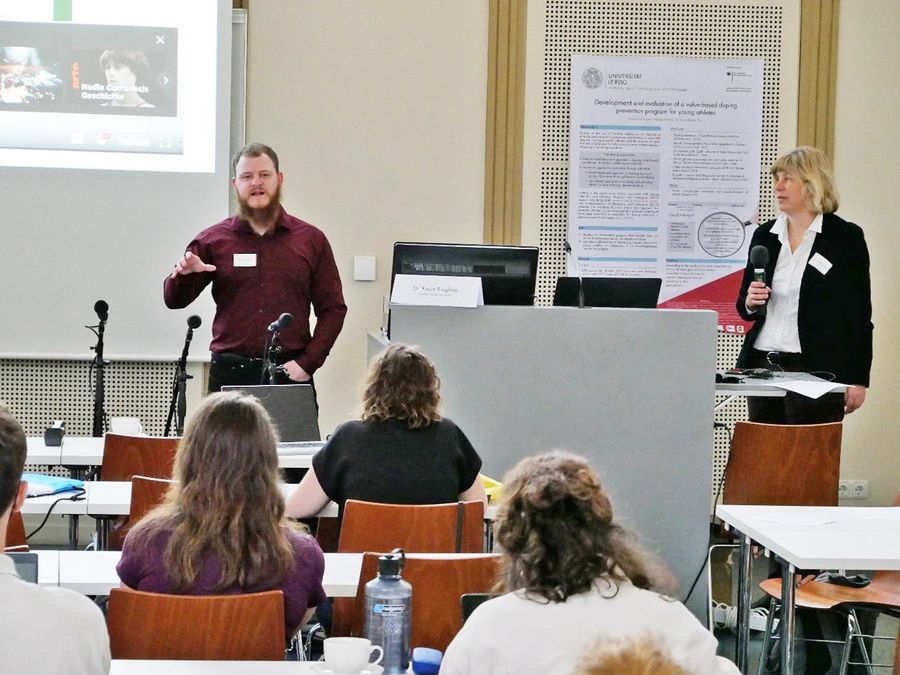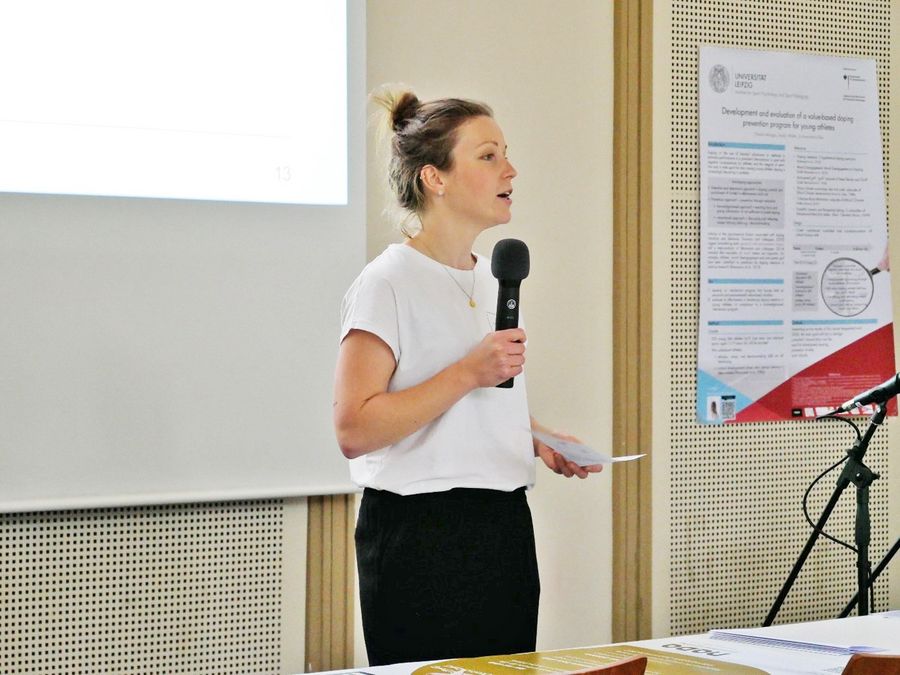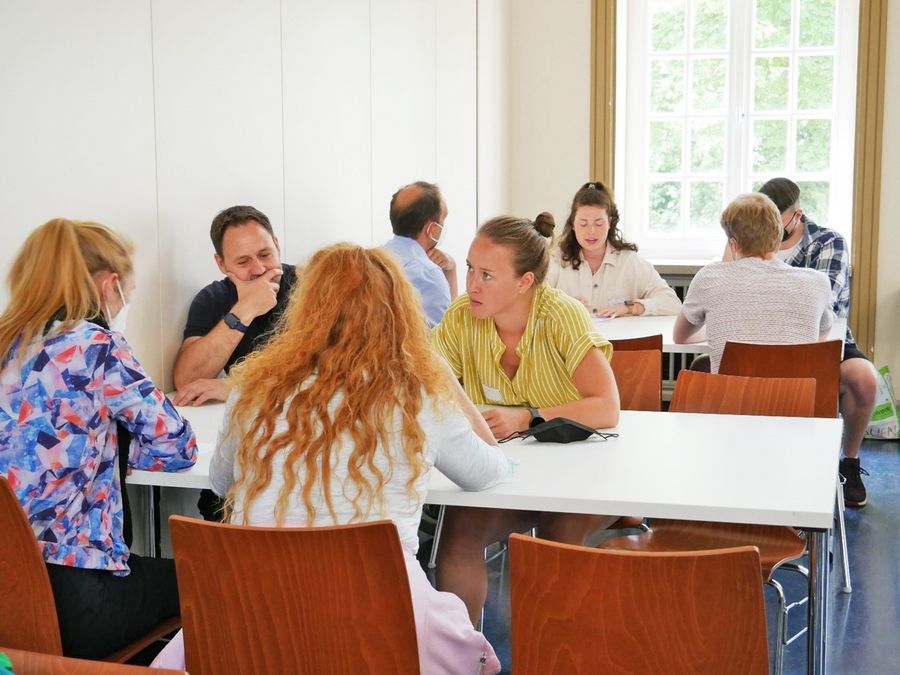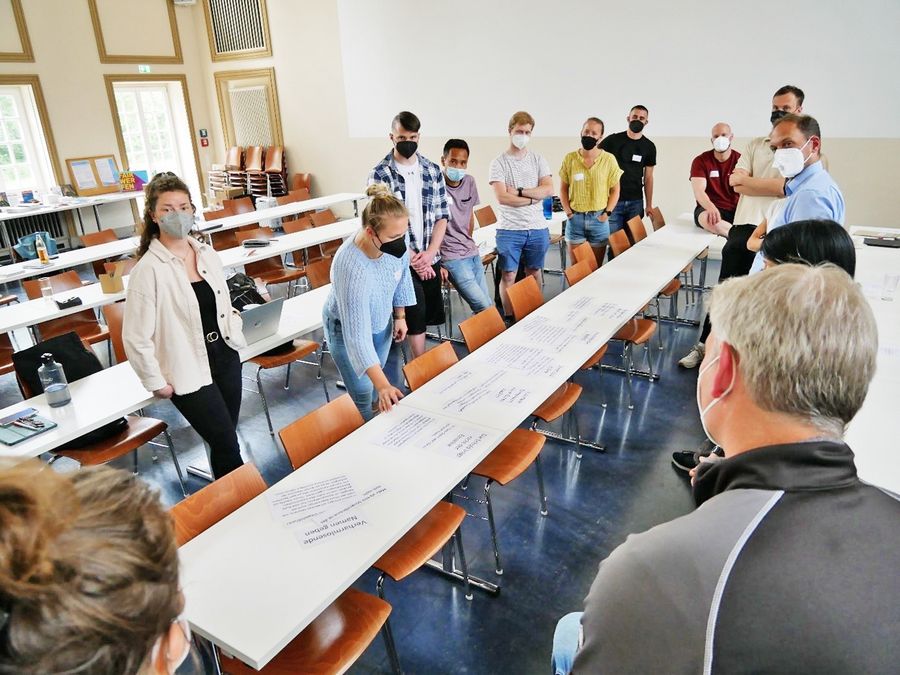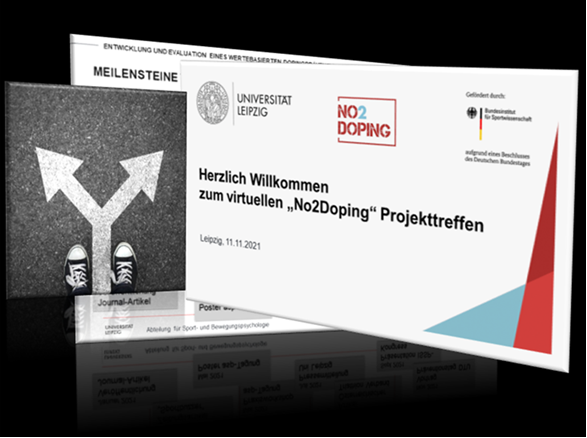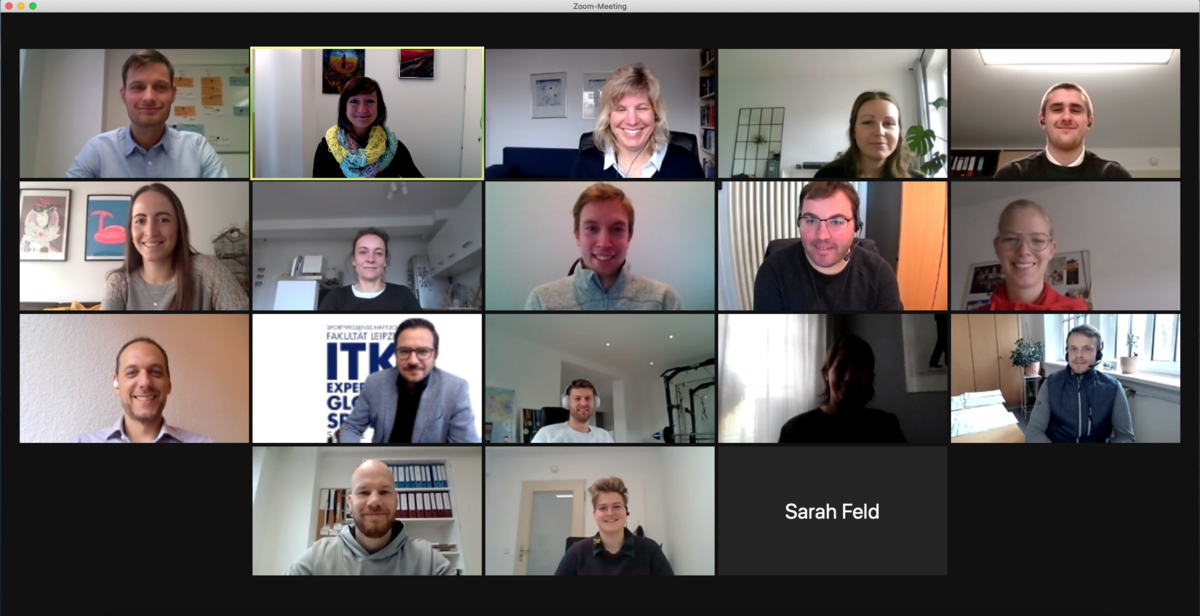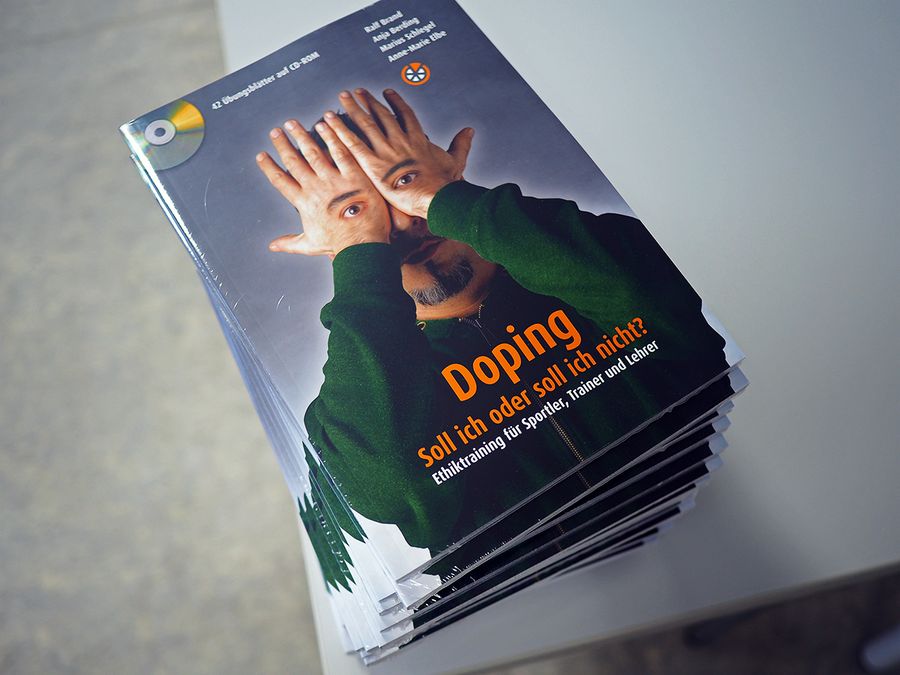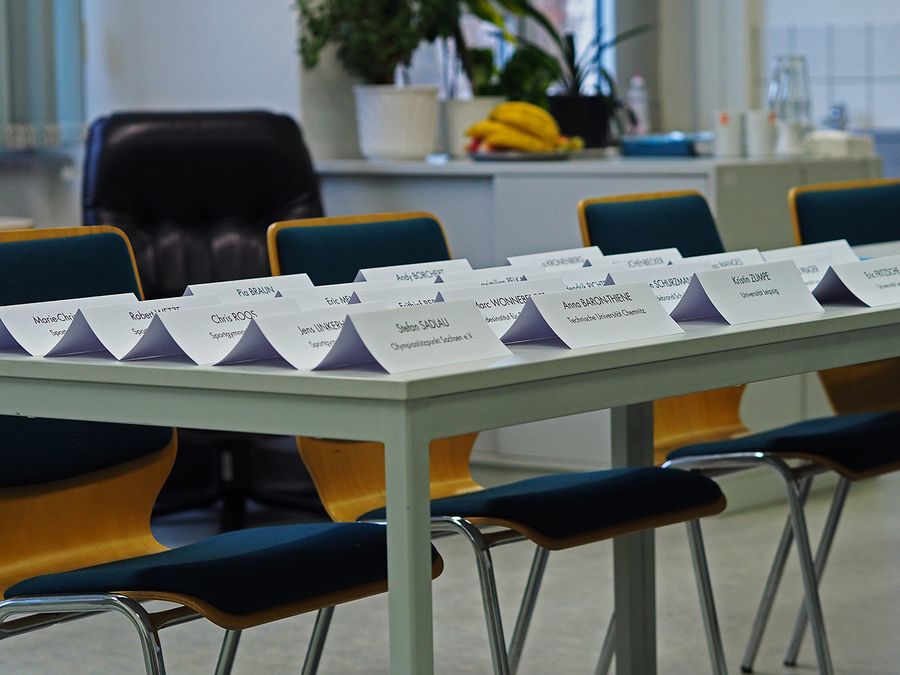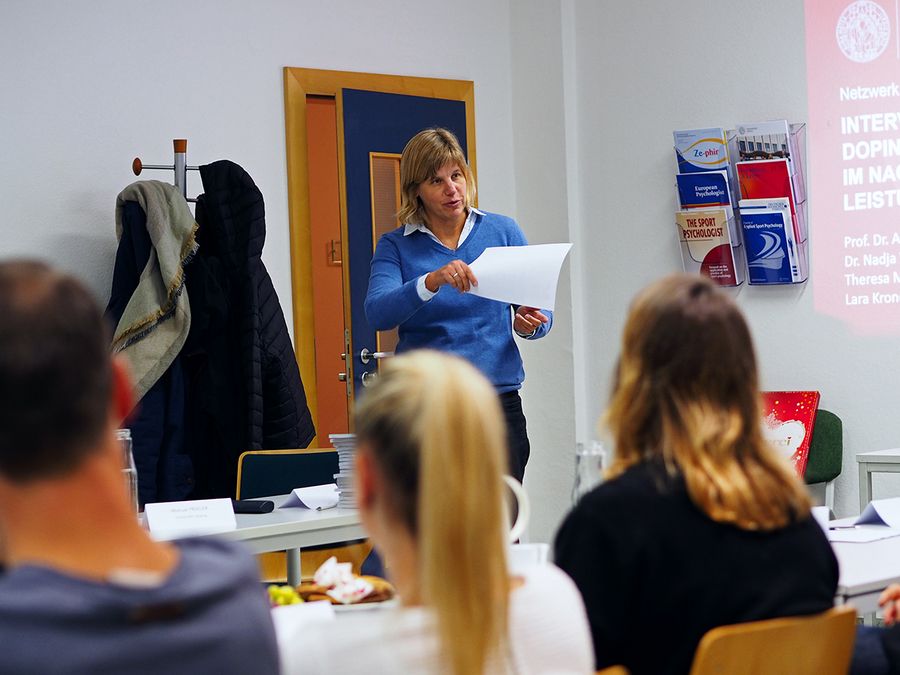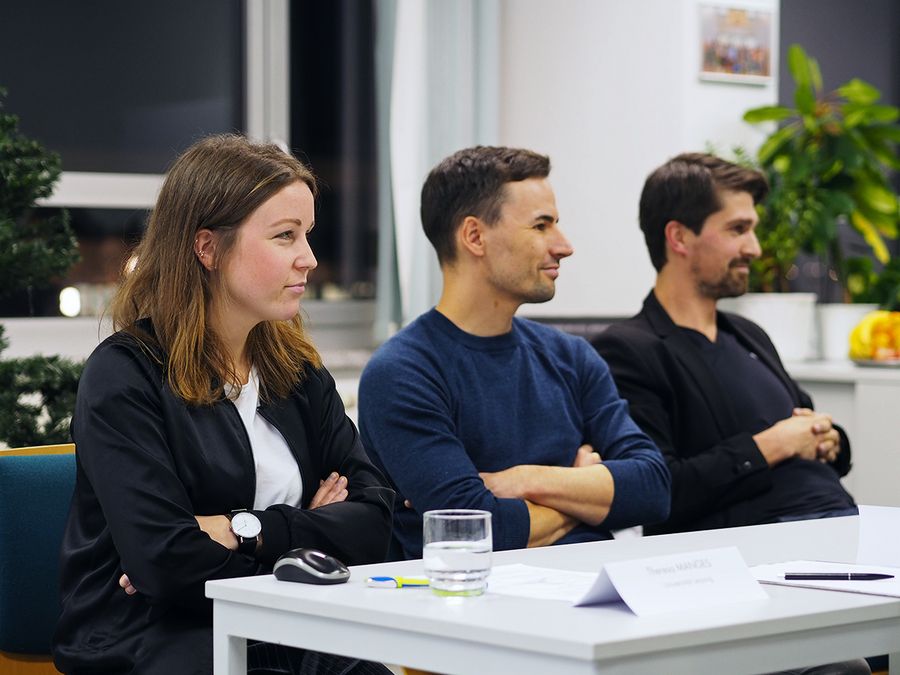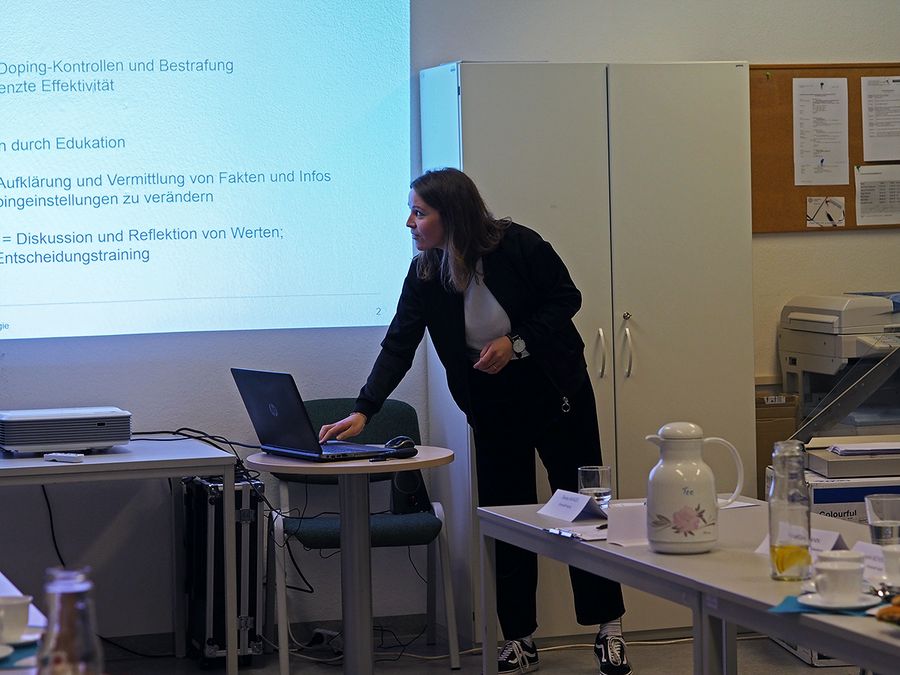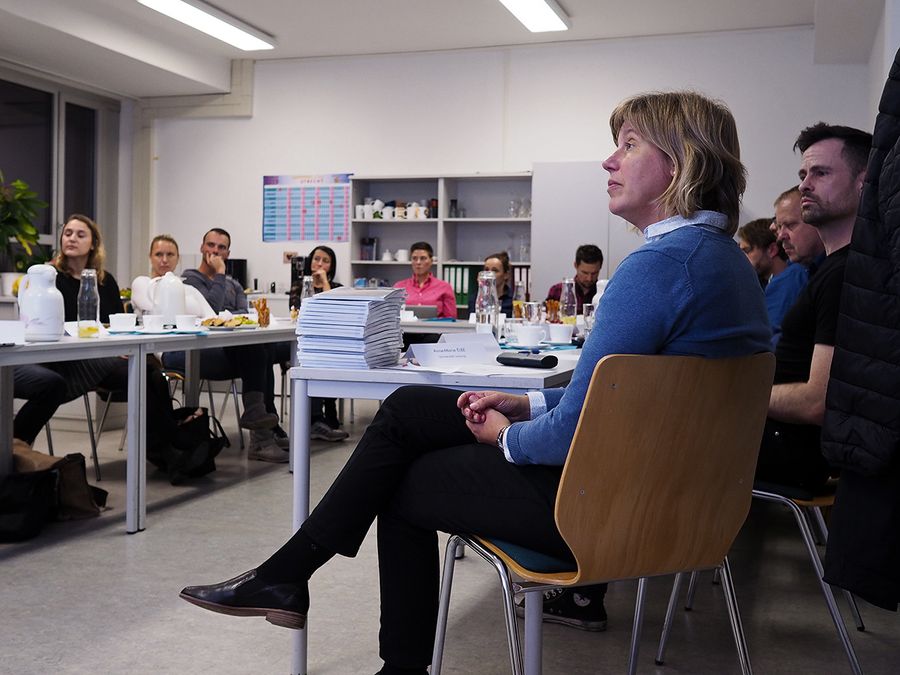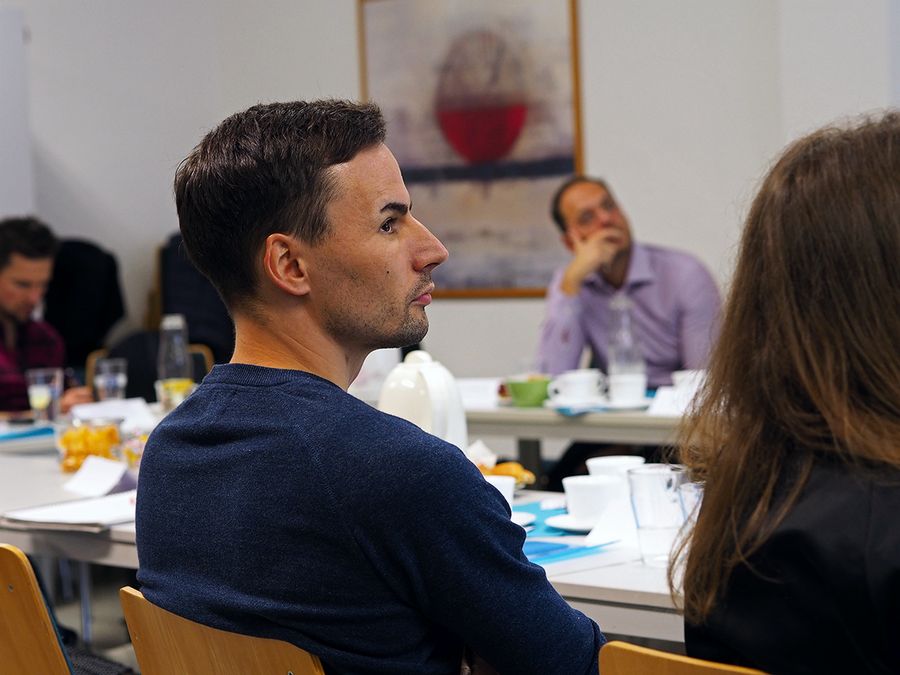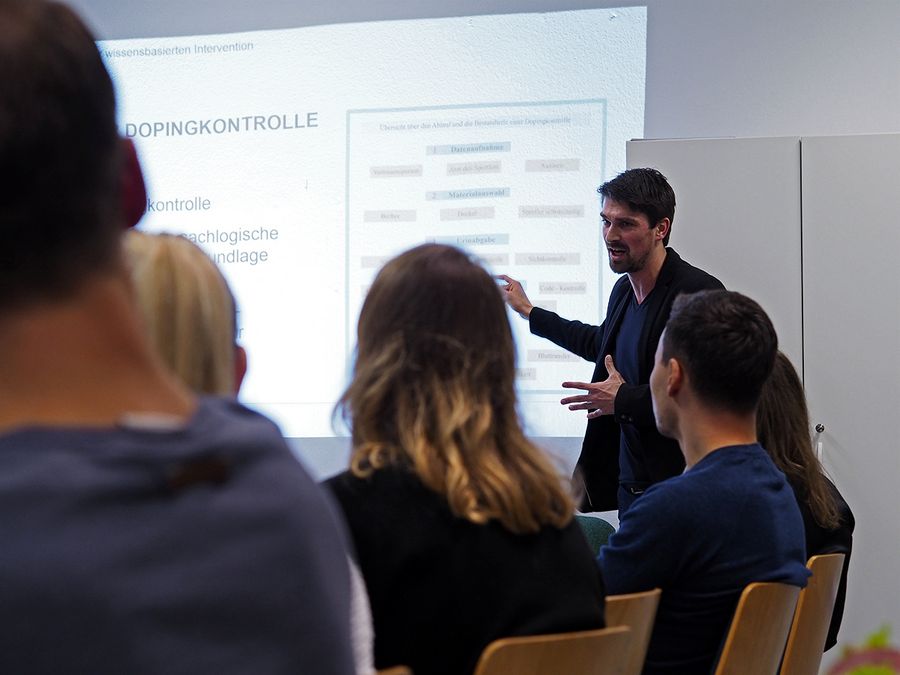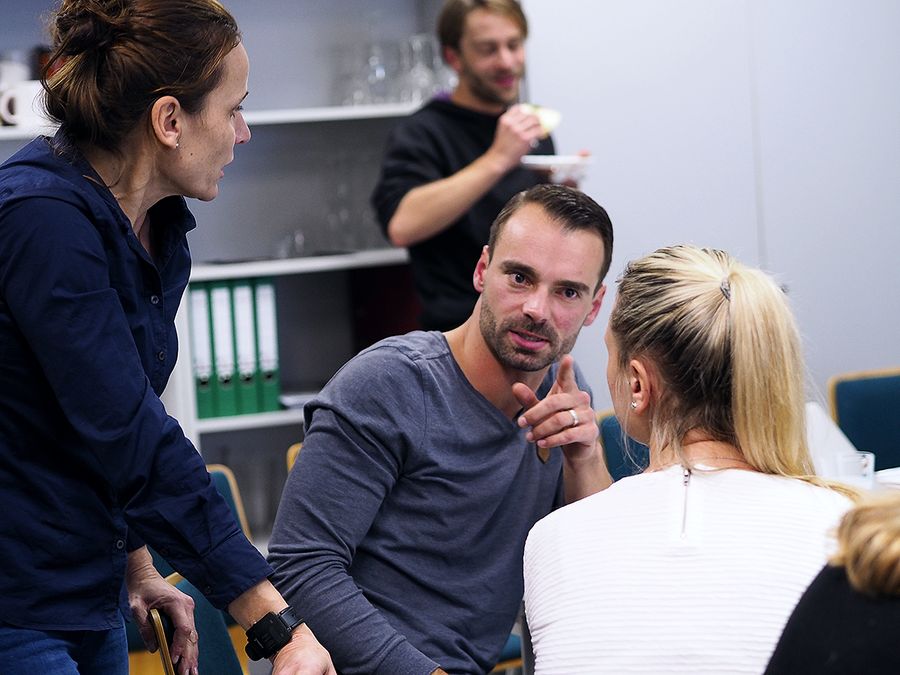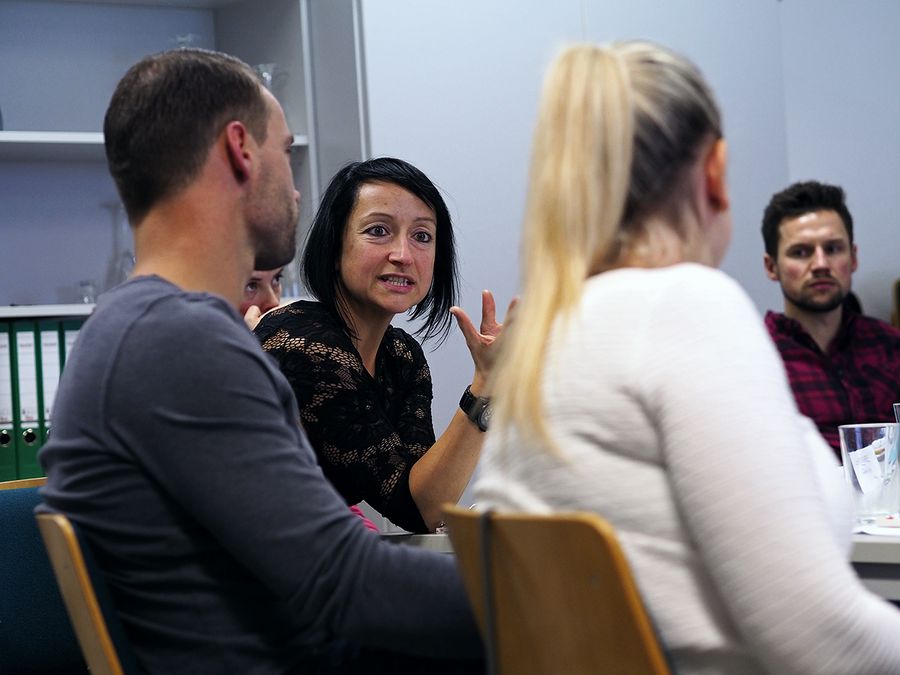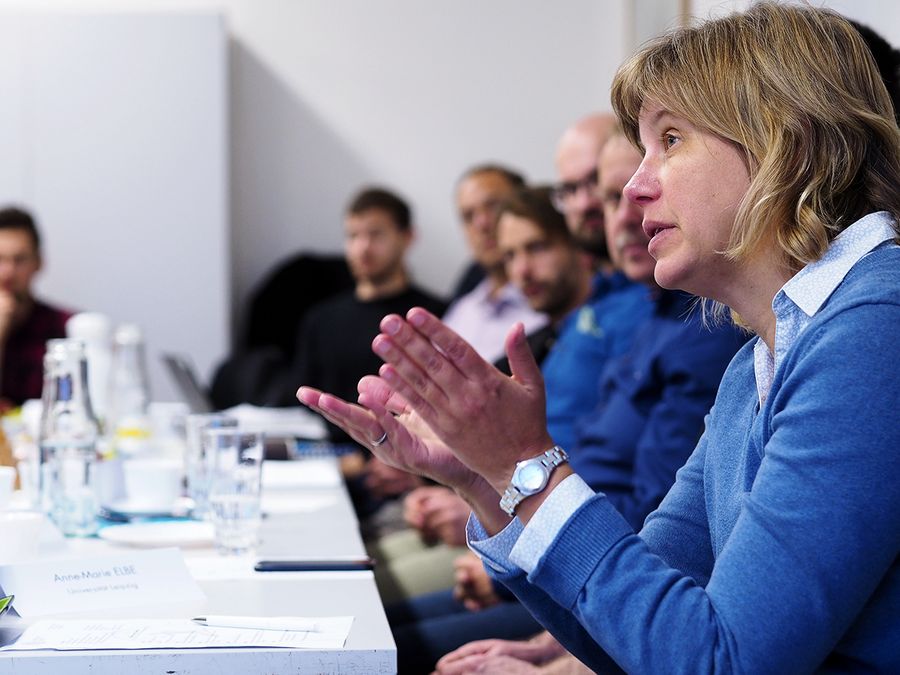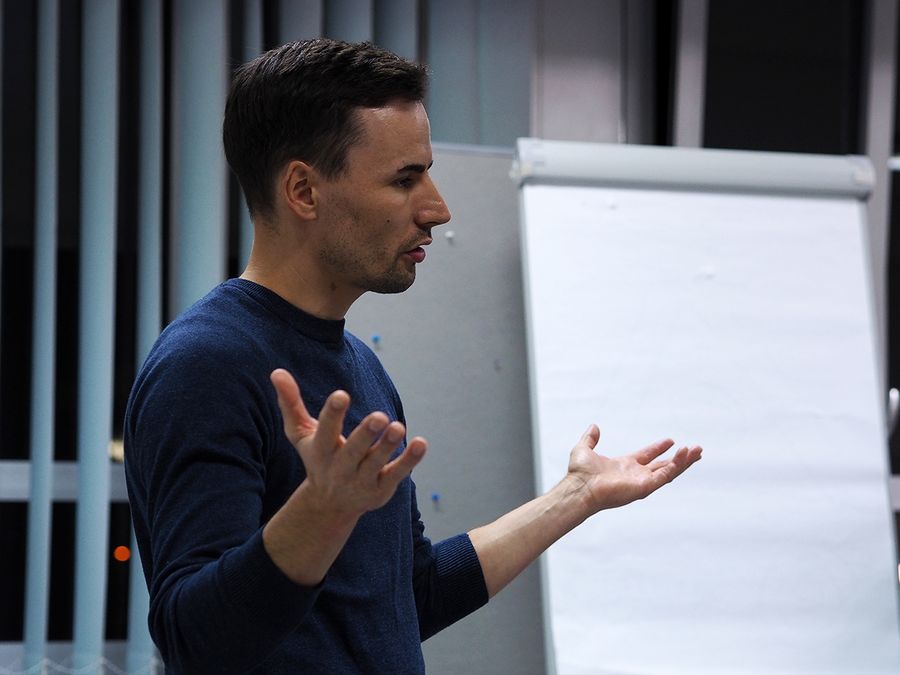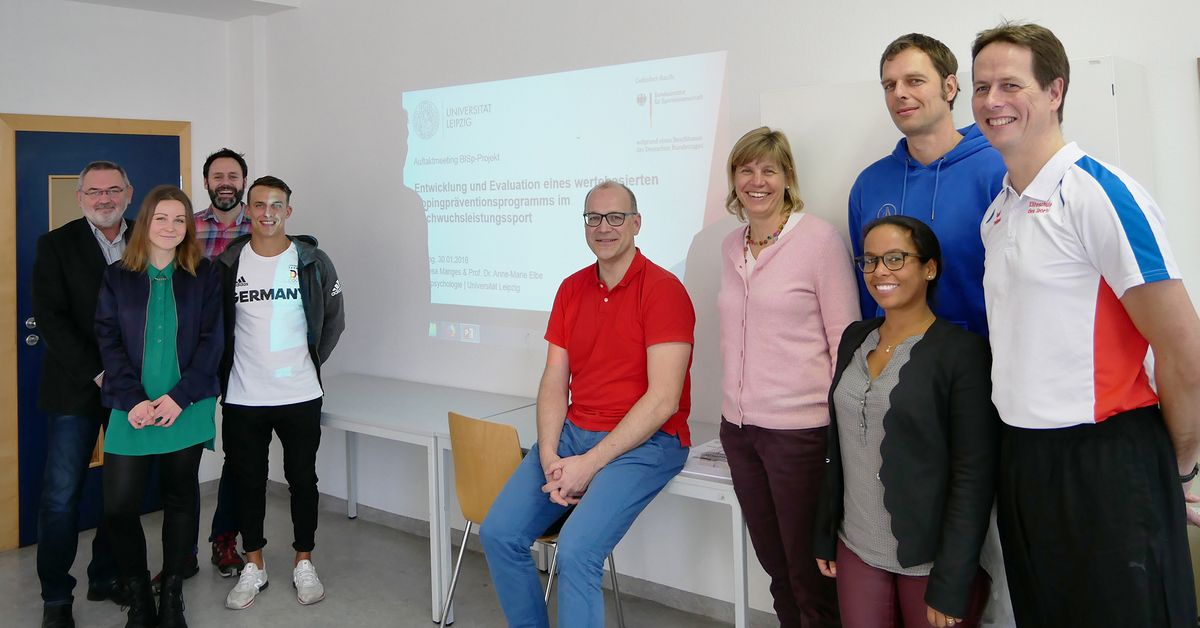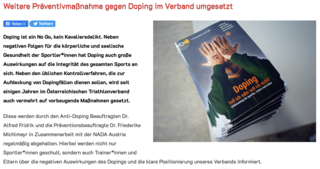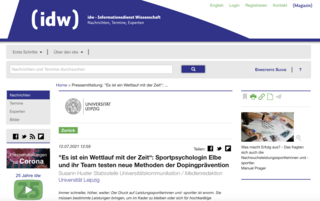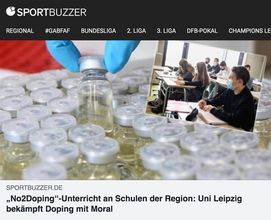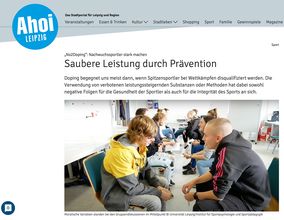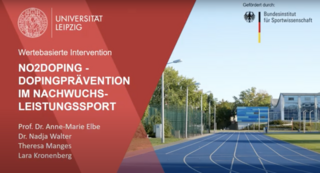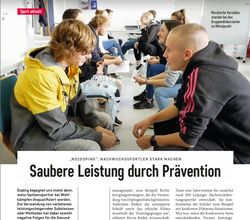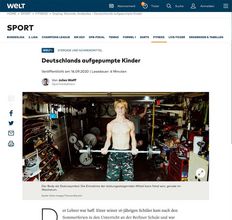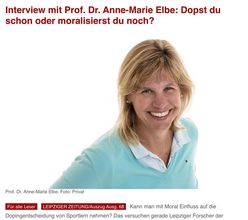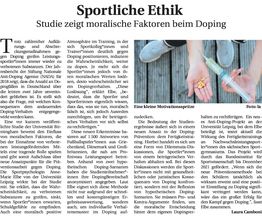Find out more about our project No2Doping and obtain latest information on the project's status.
The purpose of this study is the development, implementation, and evaluation of a psychosocial intervention program, focusing on values-based variables.
This project is funded by the Federal Institute of Sport Science (Az. ZMVI4-070301/18-19).
Abstract
Doping, or the use of banned substances to enhance performance, is a prevalent phenomenon in sports, and has negative consequences both for athletes and for the integrity of sports in society. Therefore, it is essential to develop evidence-based interventions that aim to reduce doping intentions in young athletes. The purpose of this study is the development, implementation, and evaluation of a psychosocial intervention program that focuses on values-based variables.
In previous research, moral disengagement as well as moral atmosphere were identified as predictors for doping intentions (Kavussanu, Elbe und Hatzigeorgiadis, 2015) and are therefore the variables that the intervention tries to manipulate.
The sample will consist of 200 male and female athletes from team- and individual sports, aged between 13 and 19 years. A group of 80 athletes will receive the psychosocial intervention during a 6-week intervention phase. Meanwhile, another group of 80 athletes will receive a standard knowledge-based intervention and a control group of 40 athletes will no intervention. Doping intentions will be measured through hypothetical doping scenarios whereas the above-mentioned moral variables will be assessed through questionnaires. Using an experimental design with pre-test, post-test, and follow-up, we aim to investigate the effect of the psychosocial intervention on doping intentions of young athletes.
Based on the results of this study we plan to draw implications for instruction in elite sport schools and produce a manual that teachers can use for a value-based doping prevention.
PROJECT MEETINGS
After two previous digital project meetings, the final workshop/symposium within the framework of the BISp project No2Doping took place again on 20 May 2022. Prof. Dr. Anne-Marie Elbe and Dr. Marc Wonneberger welcomed the numerous participants and gave an overview of the milestones and the current status of the project. They also welcomed the speakers Prof. Dr. Vassilis Barkoukis from the Aristotle University of Thessaloniki, Dr. Kevin Bingham from Sheffield Hallam University and Theresa Manges from the University of Leipzig. Mr Barkoukis explained to the plenary how doping prevention can be designed through serious games using VR glasses. Mr. Bingham presented his M.A.S.C. approach (Mindfulness, Acceptance, Self-Compassion, Character Strengths) which he is developing for the prevention of anabolic doping in fitness sports. Ms. Manges gave first insights into the research results on value-based doping prevention before the participants were sent off for the lunch break. She then led a workshop in which exemplary contents of value-based doping prevention were taught in practice. The fifth project meeting was concluded with a panel discussion in which Irene Winkemann (NADA), Prof. Dr. Anne-Marie (University of Leipzig), Dr. Marc Wonneberger (BISp) and Christian Dahms (LSB) answered questions from the moderator Dr. Nadja Walter and from the plenary and debated. The discussion focused on the question of how athletes, but also organisations and networks, can be more involved in doping prevention.
The entire No2Doping team looks back on the final event with satisfaction and would like to thank all project partners, speakers, participants and helpers.
Photo Gallery
On 11.11.2021 the fourth project meeting of our BISp-project “No2Doping” took place again this year, which – just like last year – took place online again. This time again, some cooperation partners met and showed great interest in the project.
After the welcome, the commitment of Kevin Seidel, who unfortunately left the project team in the summer, was highlighted once again. Afterwards, there was a brief recapitulation of the project background and a presentation of the current status. The main topics were the successful conversion of the intervention programmes to online formats and the early completion of the implementation of the interventions. The round table was opened with an outlook into the new year. In addition to the positive feedback, which we were very pleased about, it was now possible to respond to questions and ideas from our guests. The main focus was on a final workshop of our project to be held next year.
The entire No2Doping team is very satisfied with the course of the year 2021 and is now looking forward to the coming year 2022.
At the end of November, we hosted the third meeting of the No2Doping project, funded by the Federal Institute of Sport Science. We are pleased to have welcomed about 20 attendees online, including cooporation partners and interested guests.
Our presentation focused on updating everyone on the project's progress, the significant number of new cooperation partners and participants, and the launch of our main study. Following our presentation, we answered and discussed questions and comments of those in attendance. We are grateful for the many valuable ideas and feedback in support of our project's progress.
We look back on 2020, an unusually disruptive yet successful year, and we look forward to continuing our collaboration with our No2Doping project partners.
We are happy to have hosted the second meeting of our No2Doping project, funded by the Federal Institute of Sport Science. The project meeting took place this week and was attended by many of our project partners.
After an introduction round, the meeting started with the presentation of a video we produced showing No2Doping's vast network of collaborators. This was followed by a demonstration of the status quo, the description of the two intervention programmes – values-based and knowledge-based – as well as the presentation of another video, which provided insights into the values-based intervention programme.
We are very thankful for the feedback and fresh ideas of all attendants, and look forward to the next stage of our project.
Photo Gallery
Project Progress
- May 2022
poster presentation at the IAT Leipzig symposium for young competitive athletes - May 2022
publication of an article in the journal "report psychologie" (May issue) - March 2022
working group on doping and doping prevention in elite and junior competitive sport from an interdisciplinary perspective together with colleagues from Munich and Cologne at the dvs University Day (online) - Dezember 2021
manuscript submission for the Special Issue "Women in Anti-doping Sciences", Journal Frontiers in Sports and Active Living - Dezember 2021
presentation of the project at Leipzig University's academy for seniors - November 2021
presentation of the project at the colloquium of the Faculty of Sport Science at Leipzig University - Oktober 2021
project presentation at a doping-prevention event of the German Triathlon Union (DTU) - September 2020
launch of the main study (currently on hold since November 2020 due to COVID-19 measures) - August – November 2020
application and admission granted to conduct the main study at sport schools in Brandenburg, Saxony-Anhalt, and Thuringia - August 2020
second launch and conclusion of the pilot study - May – August 2020
acquisition of further participants and cooperation partners - March 2020
first launch of the pilot study (suspended due to COVID-19 measures) - July 2019 – March 2020
design of the curriculum and teaching material for the intervention programme - July – September 2019
data collection for the validation of the survey - July 2019
presentation of study design at the FEPSAC congress in Münster, Germany - May 2019
presentation of study design and the results of our survey validation at the ASP convention in Halle, Germany - March – May 2019
data collection and analysis for the validation of the survey (pilot study) - February – June 2019
translation and design of questionnaires - January 2019
kick-off event with project partners
